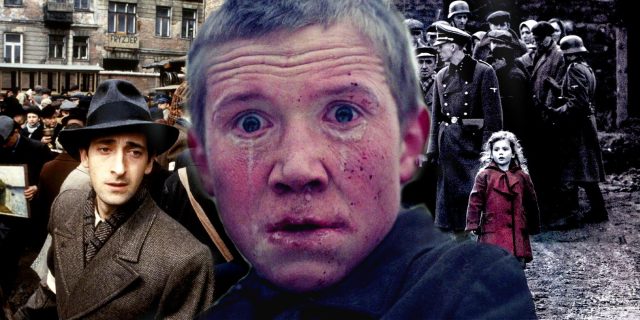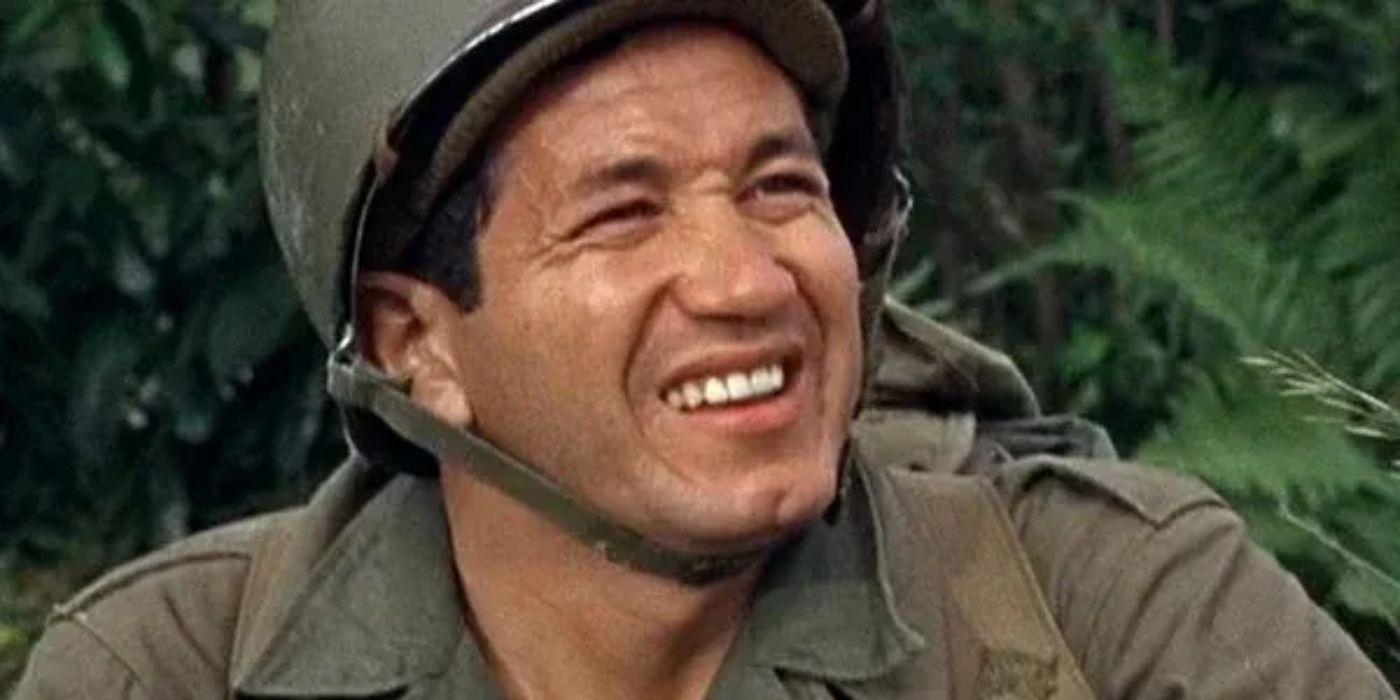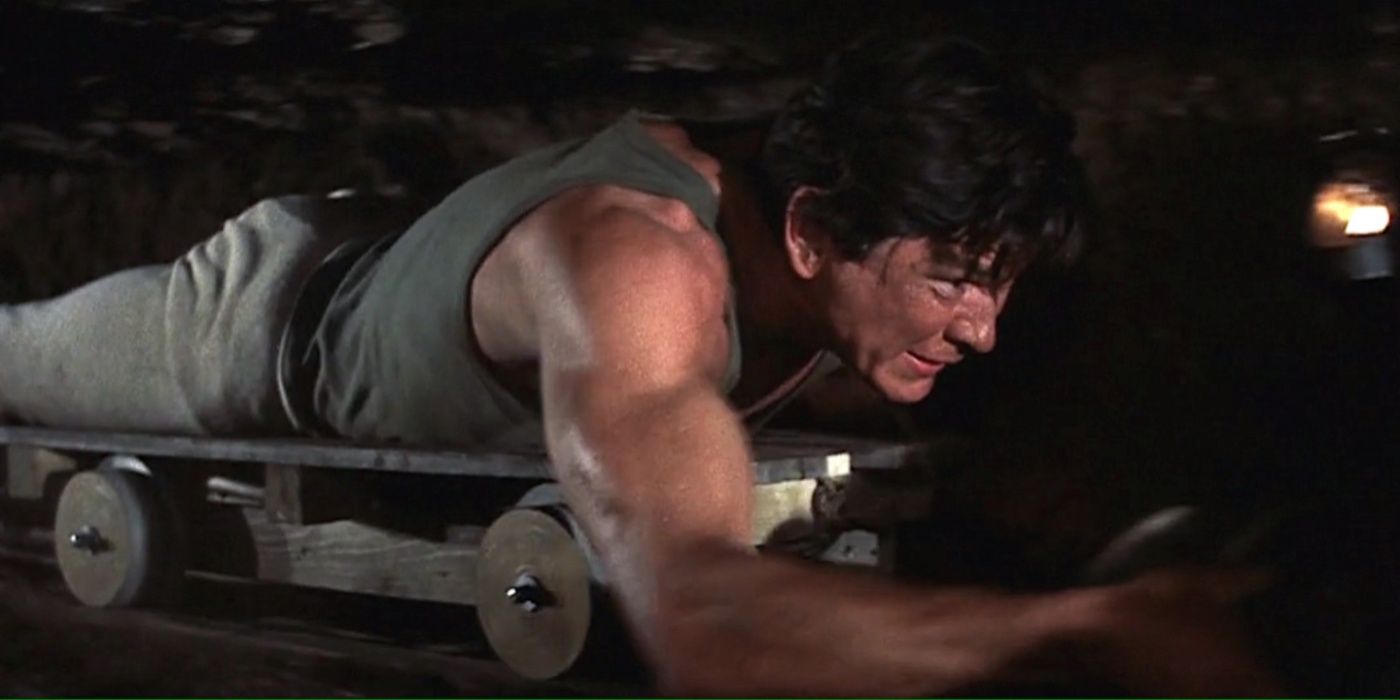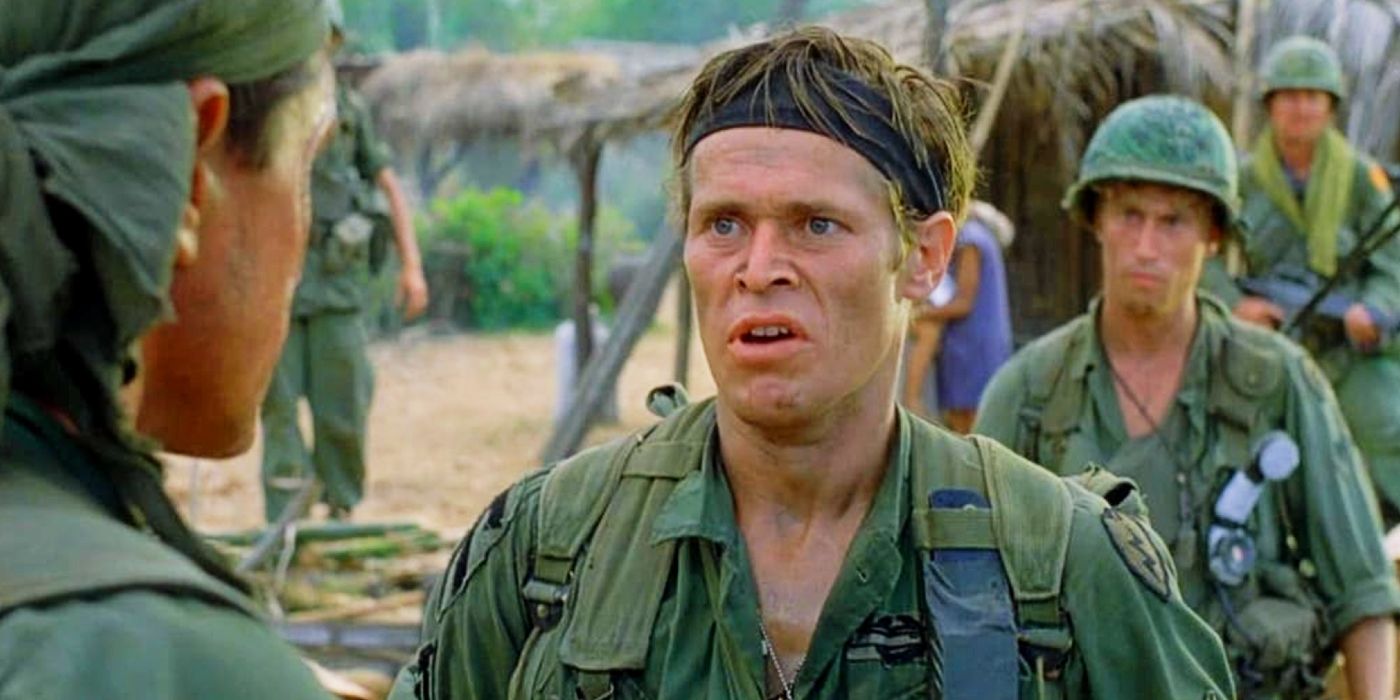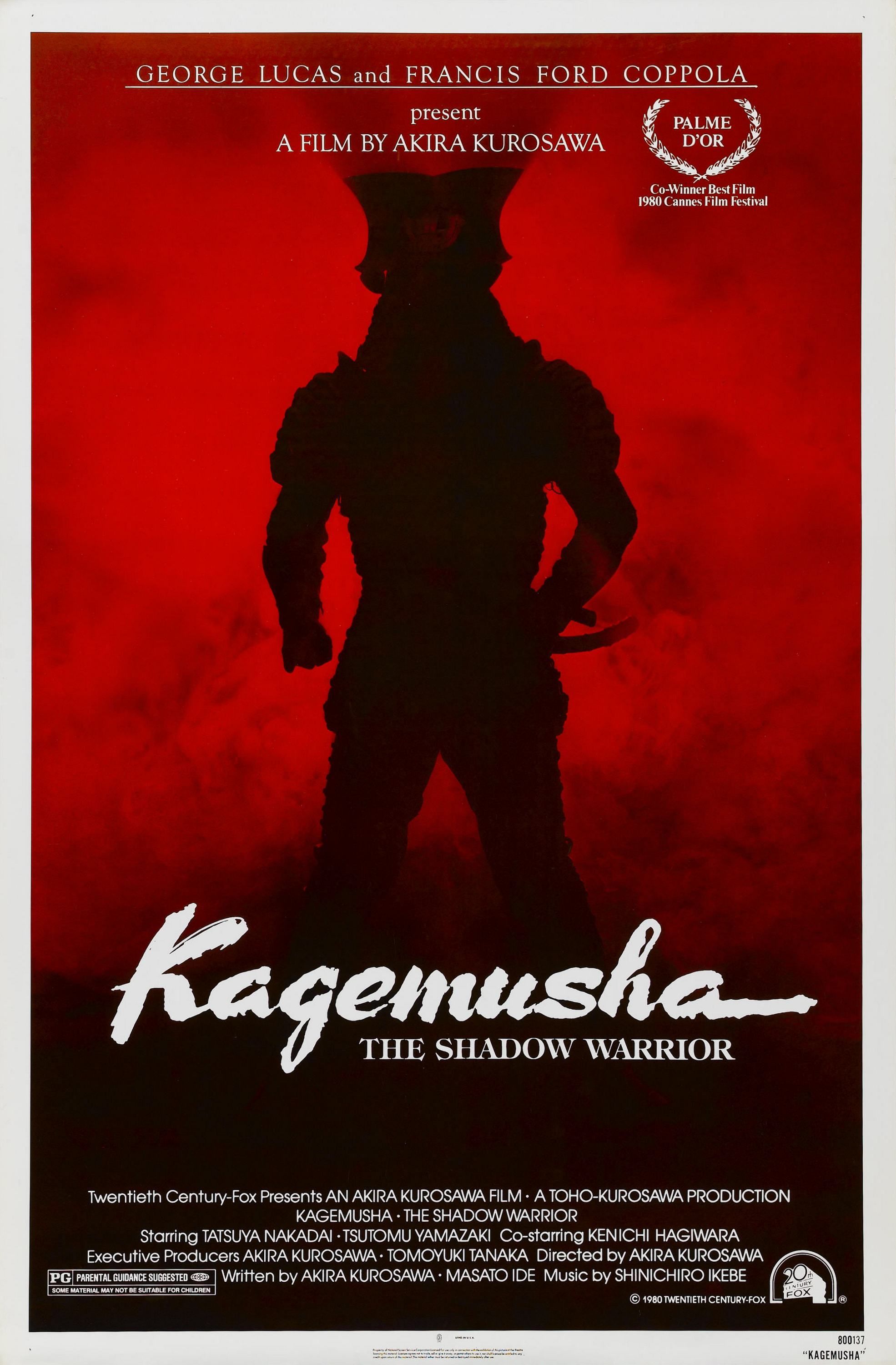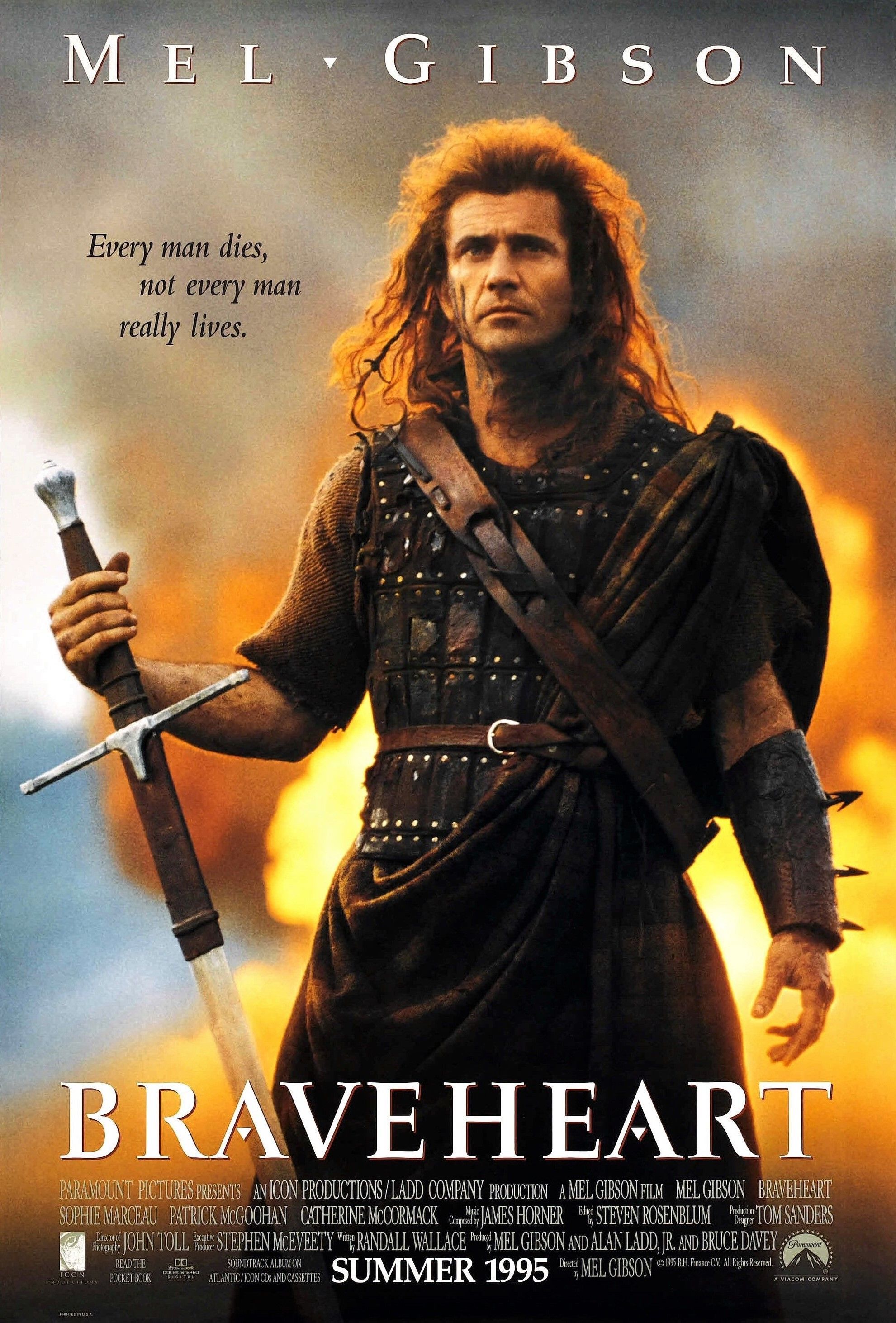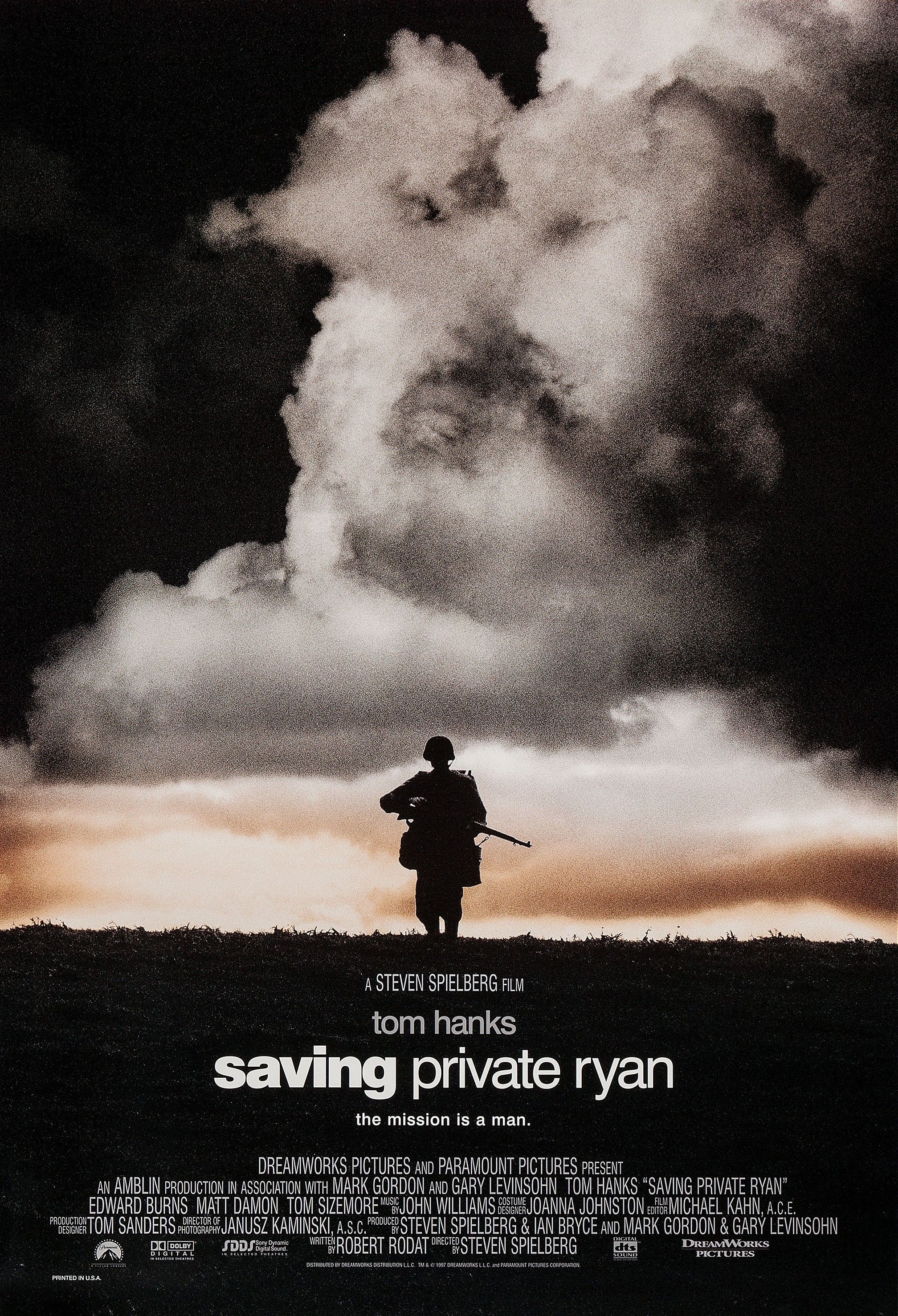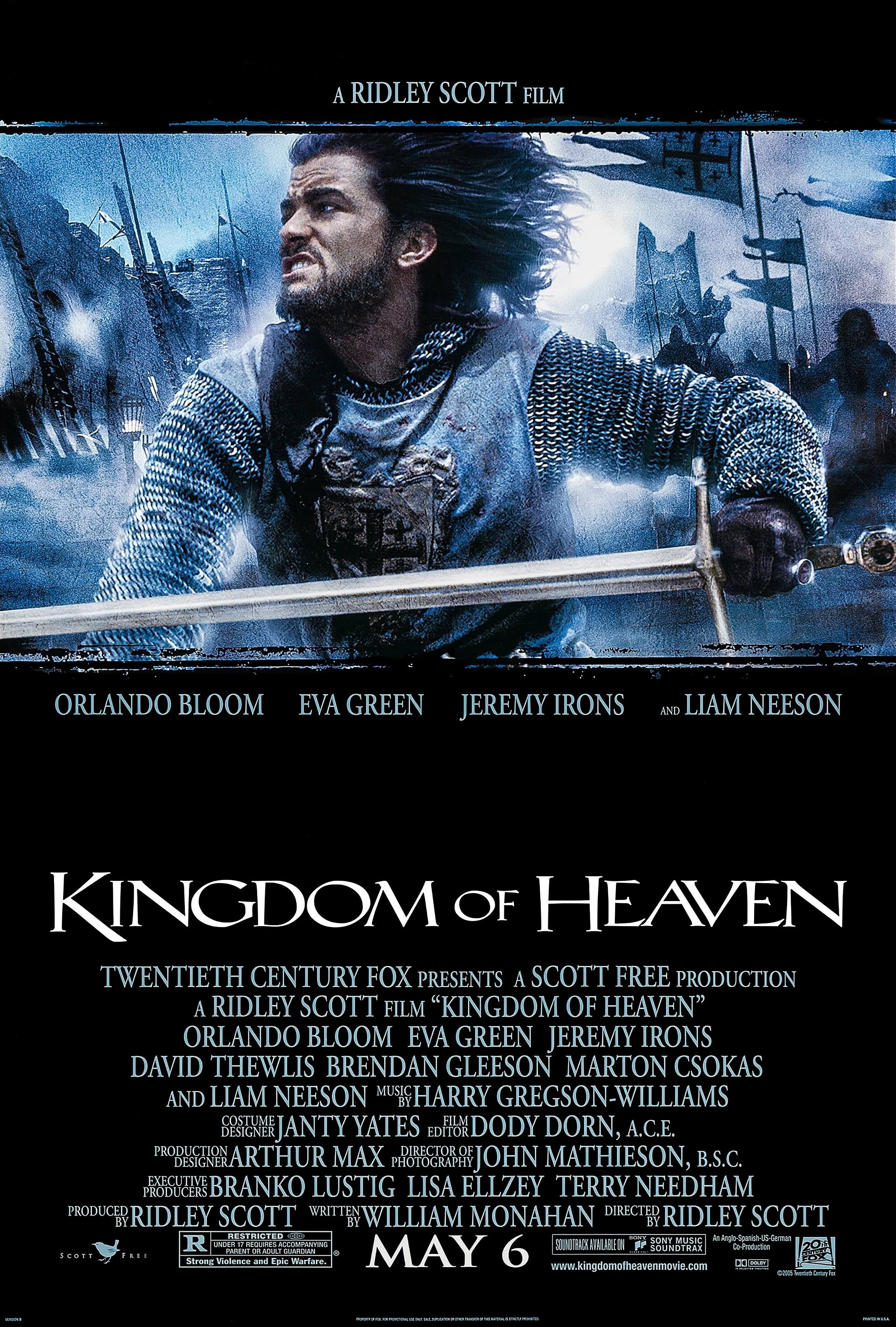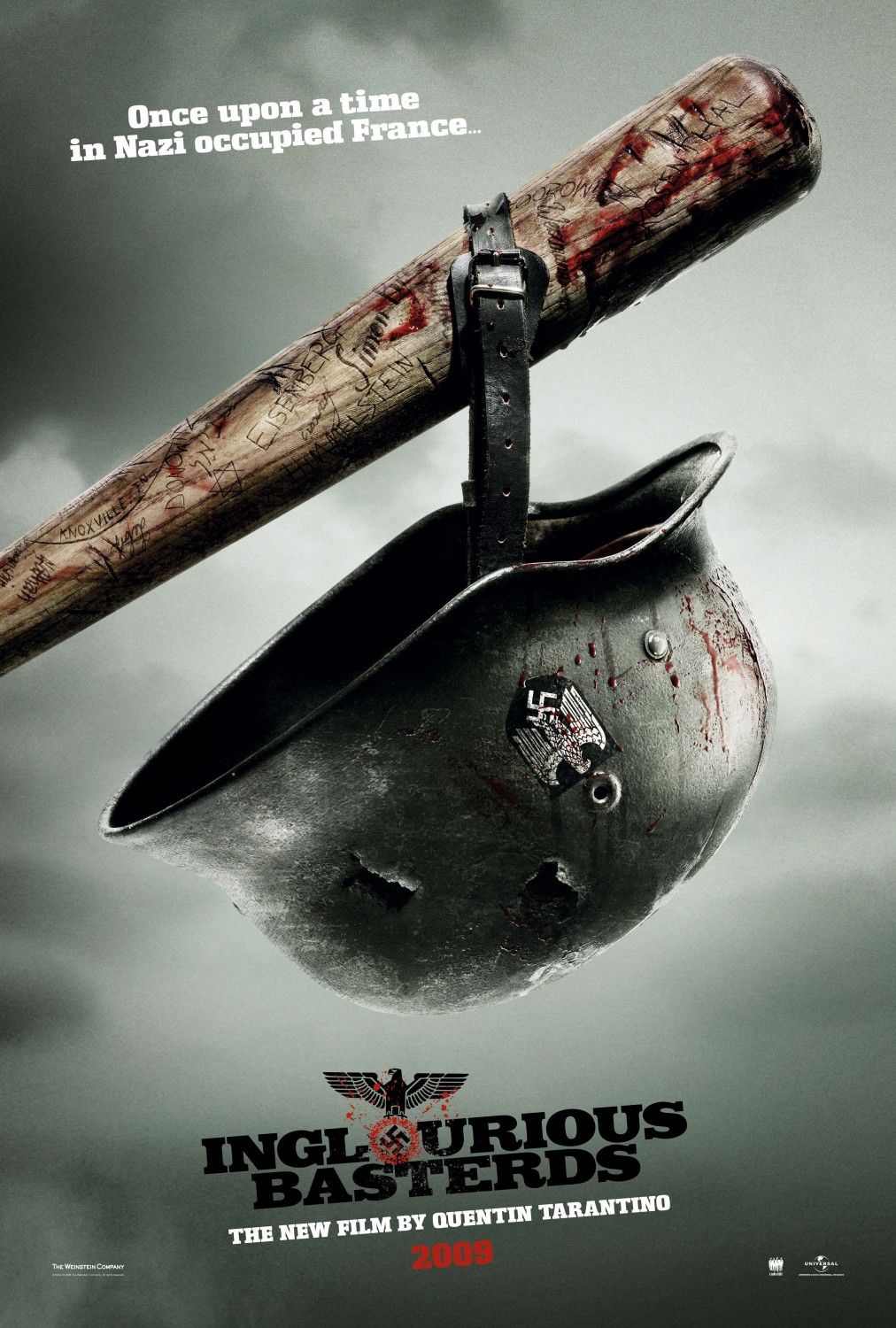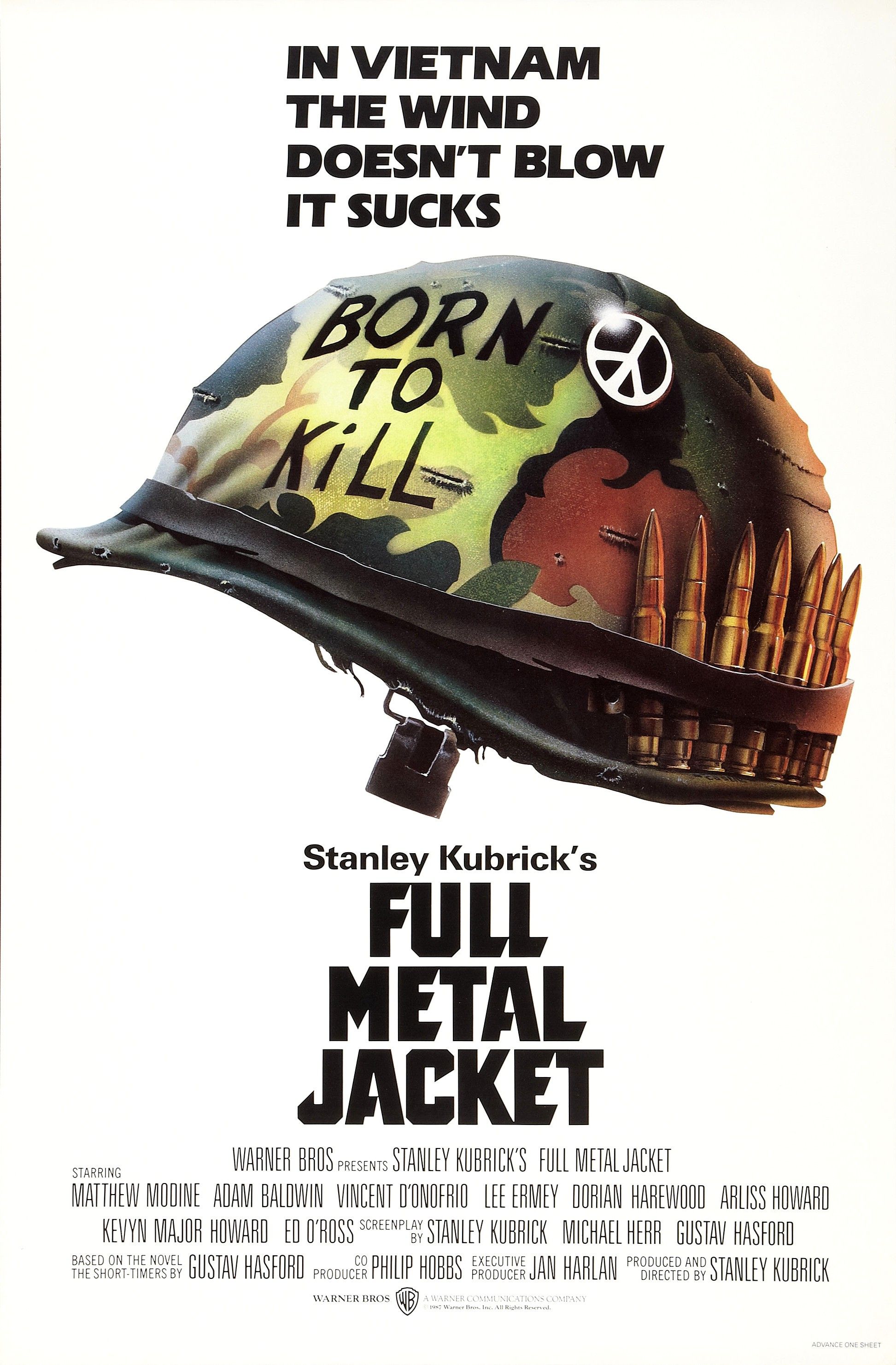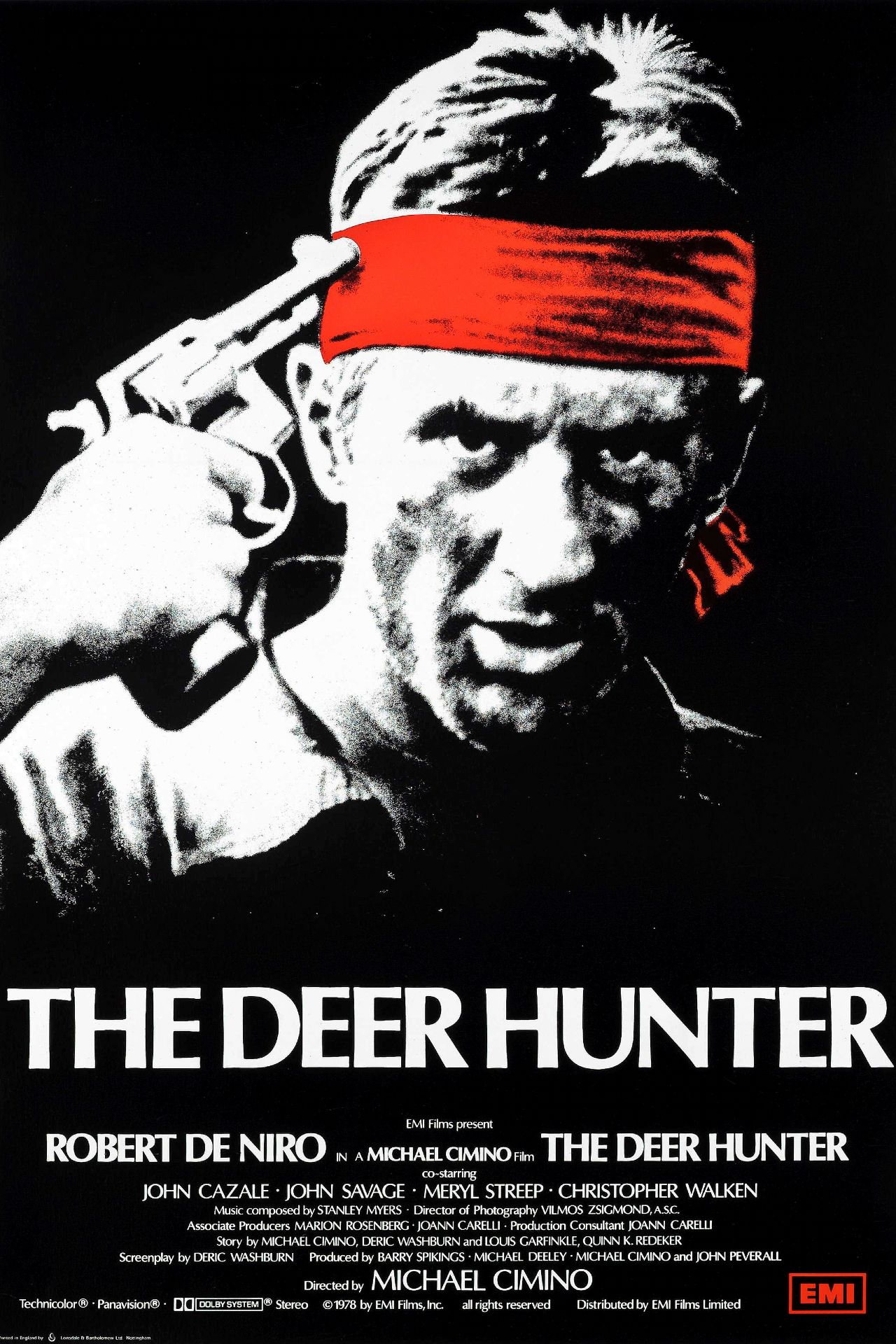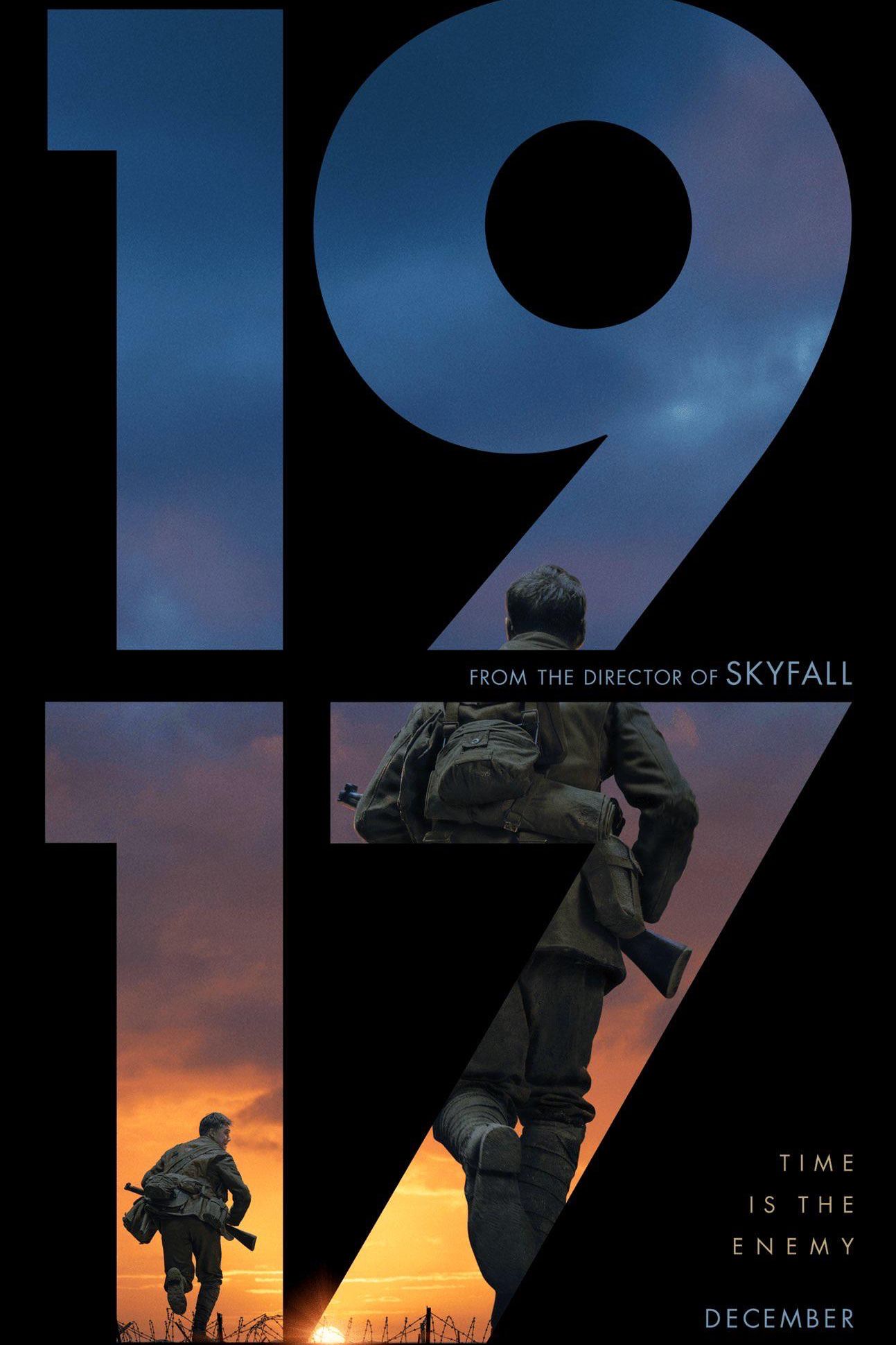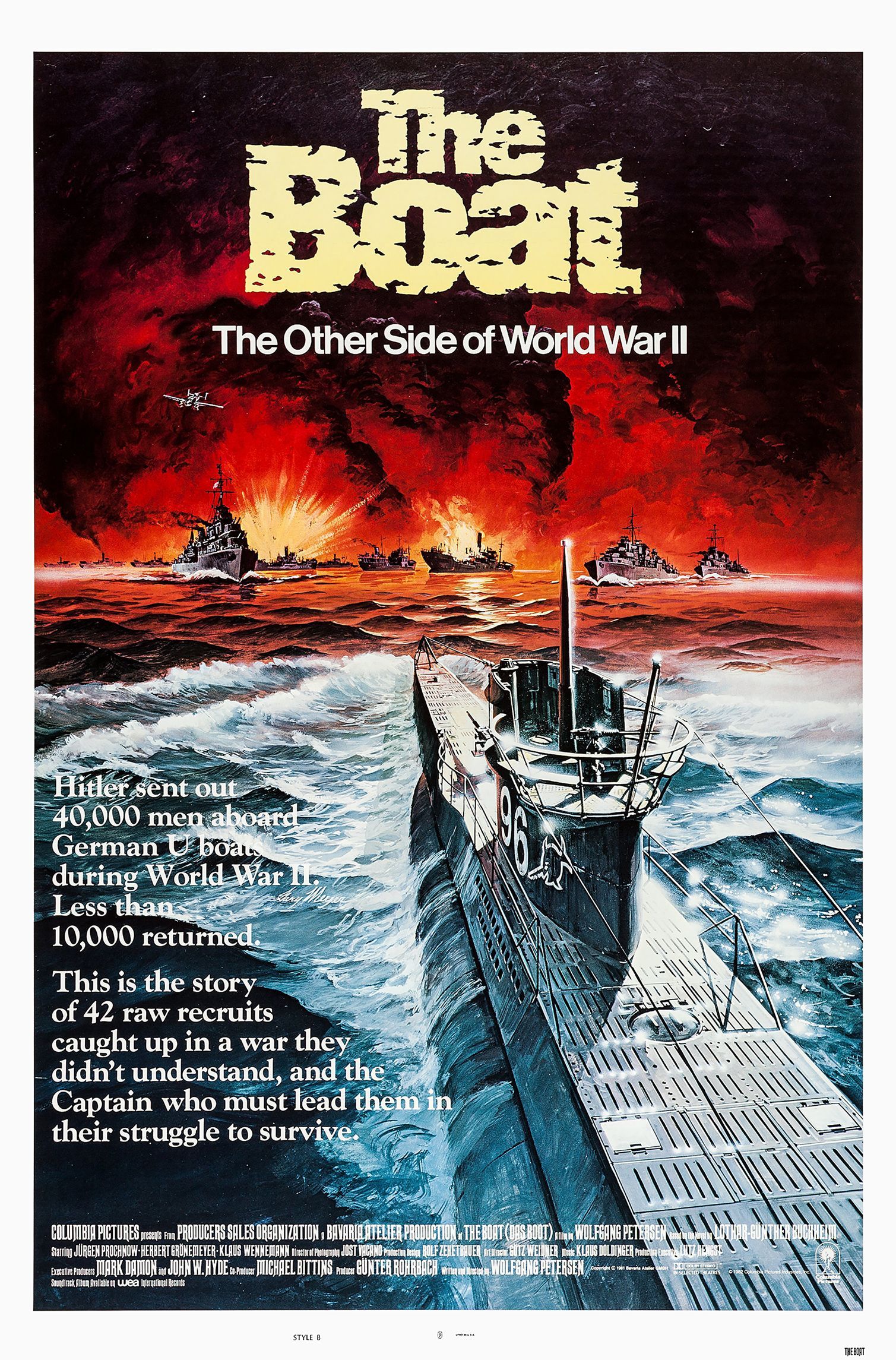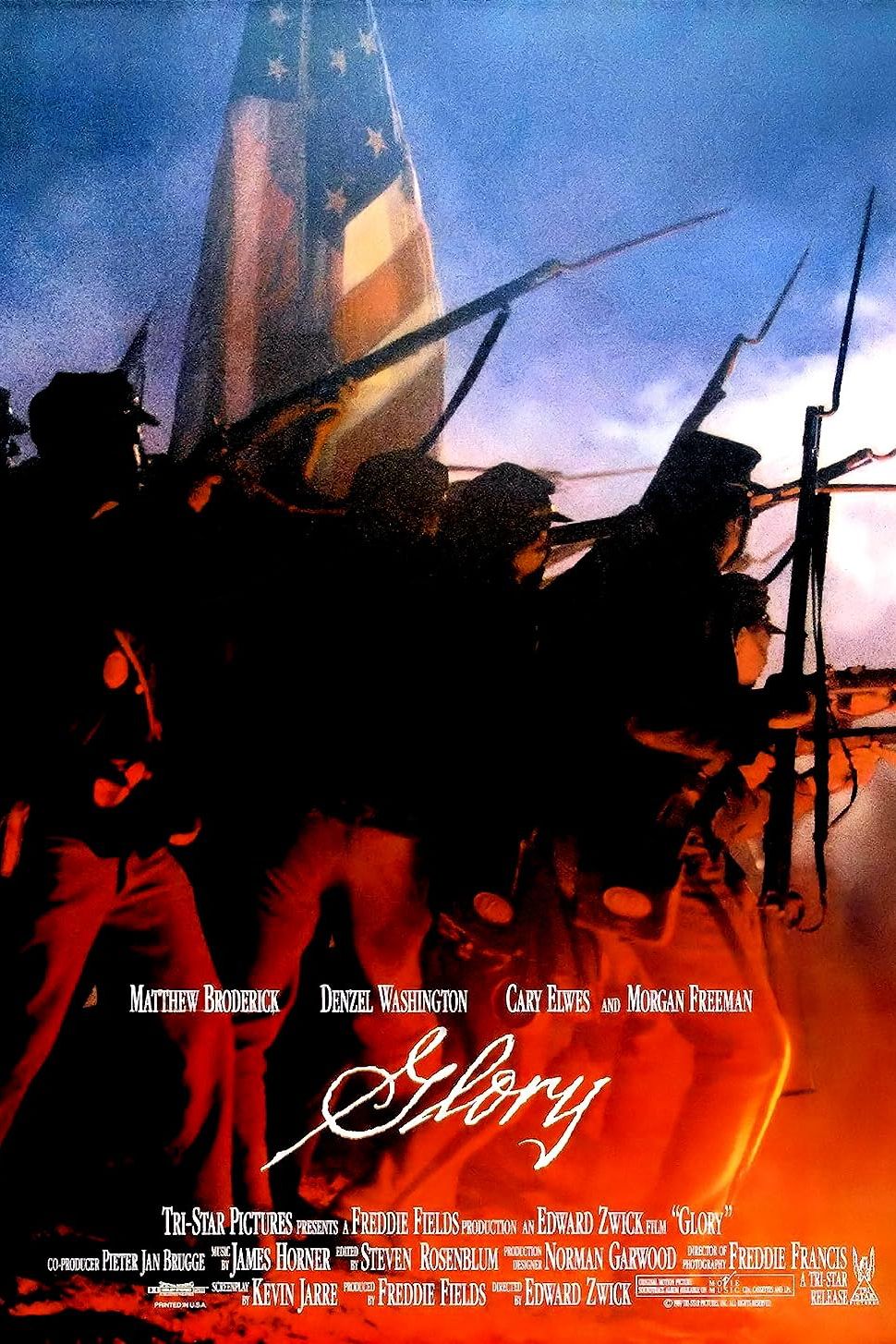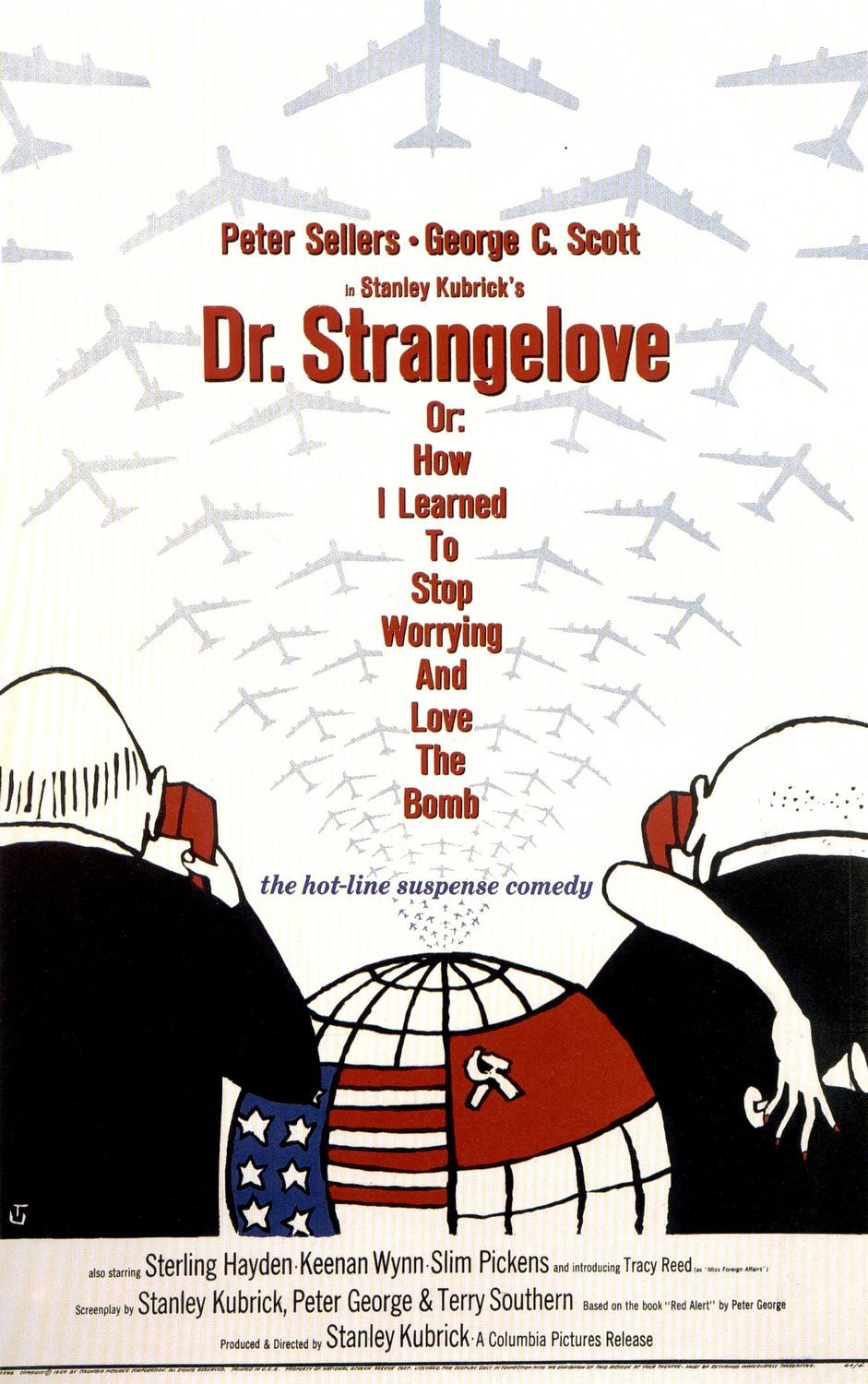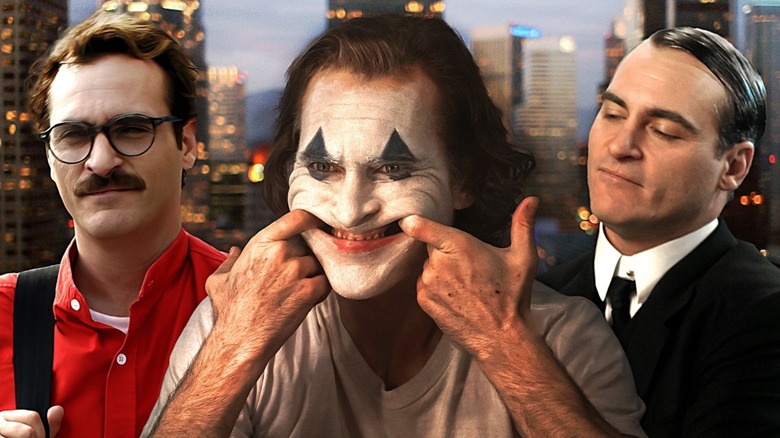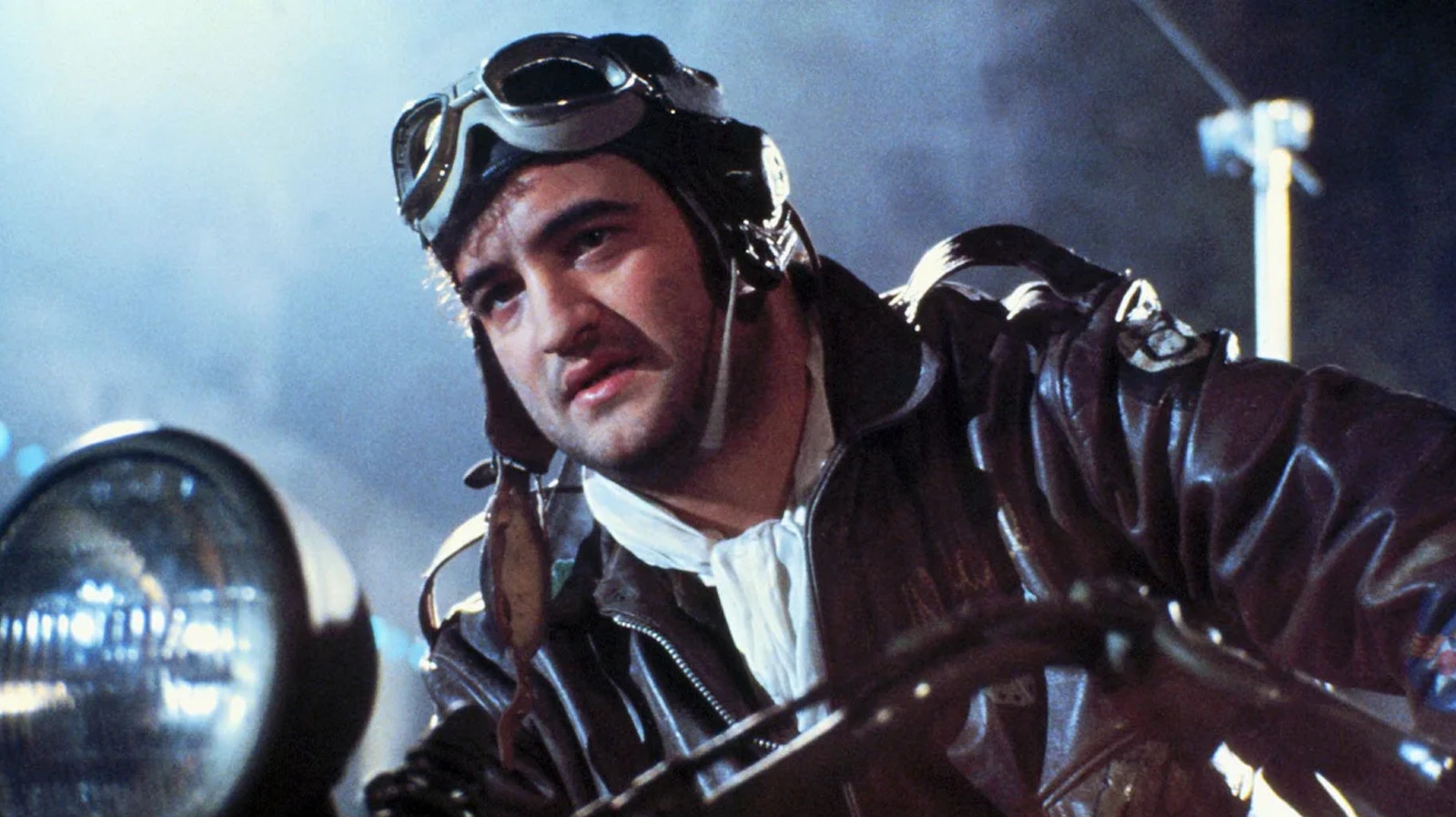Summary
- War films, from anti-war sentiments to patriotic epics, reflect the evolution of the historical motion picture genre over decades.
- Movies like “The Dirty Dozen” and “Black Hawk Down” offer adventurous perspectives, showcasing entertaining stories within the war genre.
- Films such as “Platoon” and “Dunkirk” delve into the brutal, inhumane, and hellish experiences of war, highlighting the emotional impact on individuals.
The closest that the average moviegoer can get to understanding the true nature of war is through the immersion of cinema, which is why war films are so popular, and why there have been so many remarkable additions to the genre through the decades. Only in front of the big screen can an audience experience the horrors and traumas of it, and it remains an emotionally engaging genre that continues to appeal. In the 21st century, war films generate hundreds of millions of dollars at the box office, and continue to hold huge sway over the cinematic landscape, particularly due to the fact that they are often helmed by prestigious directors.
The war film – an important subgenre of the historical motion picture – has evolved as both Hollywood and the wider cinematic landscape have since the end of the 19th century. From the devastating anti-war sentiments of 1920s and ‘30s historical epics, to the patriotic and spunky British pictures that coincided with the outbreak of the Second World War, these films have always refused to be pigeonholed. The Vietnam War spawned numerous psychedelic cinematic masterpieces within the span of a few years, while conflicts from bygone eras continue to inspire well into the 21st century.
Related
10 Most Harrowing War Movies You Can Only Watch Once
War films are important in confronting the horrors perpetrated by humans. However, this does mean some are so upsetting people can’t watch them twice.
25 The Dirty Dozen (1967)
Directed By: Robert Aldrich
While war movies tend to have the reputation of being grim and intense experiences, there are some that take a more adventurous approach to the genre. The Dirty Dozen is one of the quintessential “team on a mission” movies as it stars Lee Marvin as a hardened military officer who is given the task of assembling a team of convicted murderers for a dangerous mission during World War II.
While The Dirty Dozen might not be as historically accurate as many other war movies, it is one of the most entertaining entries in the genre. Seeing this group of unlikely heroes come together, develop tensions, form bonds, and find dignity in their mission is a great arc for the ensemble. It also features a terrific cast that includes Donald Sutherland, Telly Savalas, Charles Bronson, and Jim Brown.
24 Black Hawk Down (2001)
Directed By: Ridley Scott
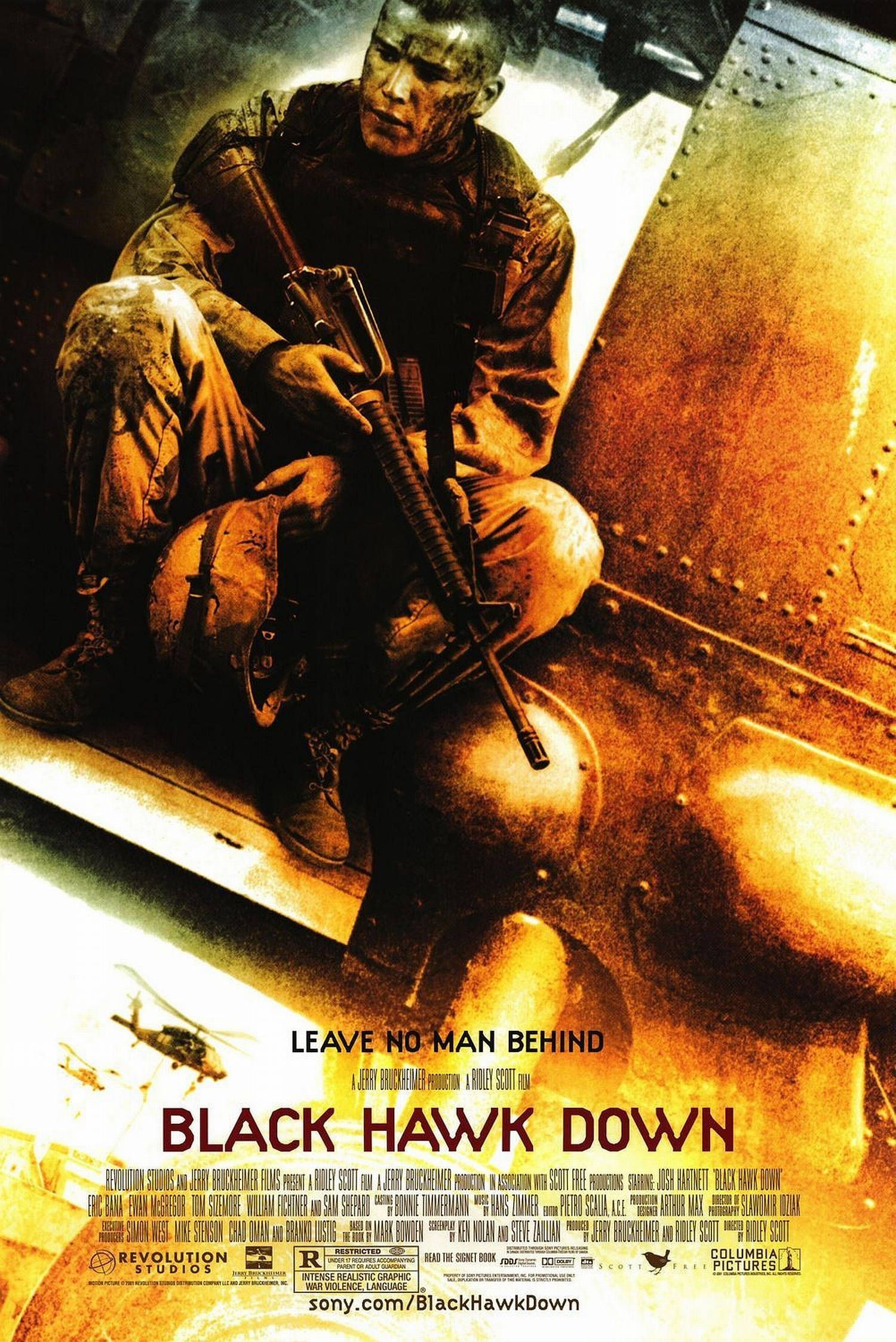
Black Hawk Down
Black Hawk Down recounts the harrowing true story of a U.S. military mission gone awry in Somalia. Tasked with capturing a warlord, elite soldiers find themselves in a fierce battle against Somali militia forces.
- Release Date
- January 18, 2002
- Runtime
- 144 minutes
Sometimes the best war movies are ones that focus on battles that are rarely talked about in modern history. Such is the case for Ridley Scott’s Oscar-nominated war movie, as Black Hawk Down tells the true story of a disastrous mission that turned into a fight for survival.
In 1993, over 100 American soldiers went into Mogadishu to capture high-ranking officers of a warlord. However, the American forces soon found themselves overrun by the Somali rebels. The movie is one of the most intense war movies as most of its runtime is a battle sequence as the trapped soldiers fight for their lives in the chaotic city.
The Black Hawk Down cast is also a star-studded affair with the likes of Josh Hartnett, Eric Bana, and Ewan McGregor leading the ensemble, while it also served as an early movie for future stars like Nikolaj Coster-Waldau, Ty Burrell, and Tom Hardy.
23 The Great Escape (1963)
Directed By: John Sturges
The Great Escape is another adventure-style war movie with a huge cast of famous faces and a rollicking tone. However, not only is the fun elevated by the fact that it is loosely based on a true story, but it also combines the war movie genre with one of the best prison escape movies of all time.
The Great Escape stars the likes of Steve McQueen, James Garner, Charles Bronson, and Richard Attenborough in the story of a group of Allied POWs in a German camp who stage an elaborate plan for a massive prison break.
Unlike most war movies that feature big battles and action on the frontlines, The Great Escape takes a look at what life is like for these soldiers in prison camps and the heroism they still have despite being prisoners. Watching the clever and complex plan come together is a real thrill, leading to the climax of the movie, which is exciting, heartbreaking, and triumphant all at once.
22 Platoon (1986)
Directed By: Oliver Stone
Platoon
- Director
- Oliver Stone
- Release Date
- December 19, 1986
- Cast
- Tom Berenger , Willem Dafoe , Charlie Sheen , Keith David , Forest Whitaker , Francesco Quinn , Kevin Dillon , John C. McGinley
- Runtime
- 120 Minutes
Depictions of the Vietnam War have often highlighted the brutal, hellish, and inhumane experiences of that war and Platoon is one of the most harrowing examples of this. The fact that filmmaker Oliver Stone drew from his own experiences as an infantry officer during the war really adds to the movie’s impact. Charlie Sheen stars as a young man who volunteers to fight and soon finds there is no glory to be found in this war.
Tom Berenger and Willem Dafoe play two seasoned officers who are polar opposites when it comes to their outlook on the war and the conflict between them builds to shocking developments. The movie highlights the endless danger and uncertainty lurking in the jungle as well as the horrors the American soldiers were capable of during their surreal experience. The movie also contains performances from the likes of Johnny Depp, Keith David, Forrest Whittaker, and other young stars.
21 Dunkirk (2017)
Directed By: Christopher Nolan
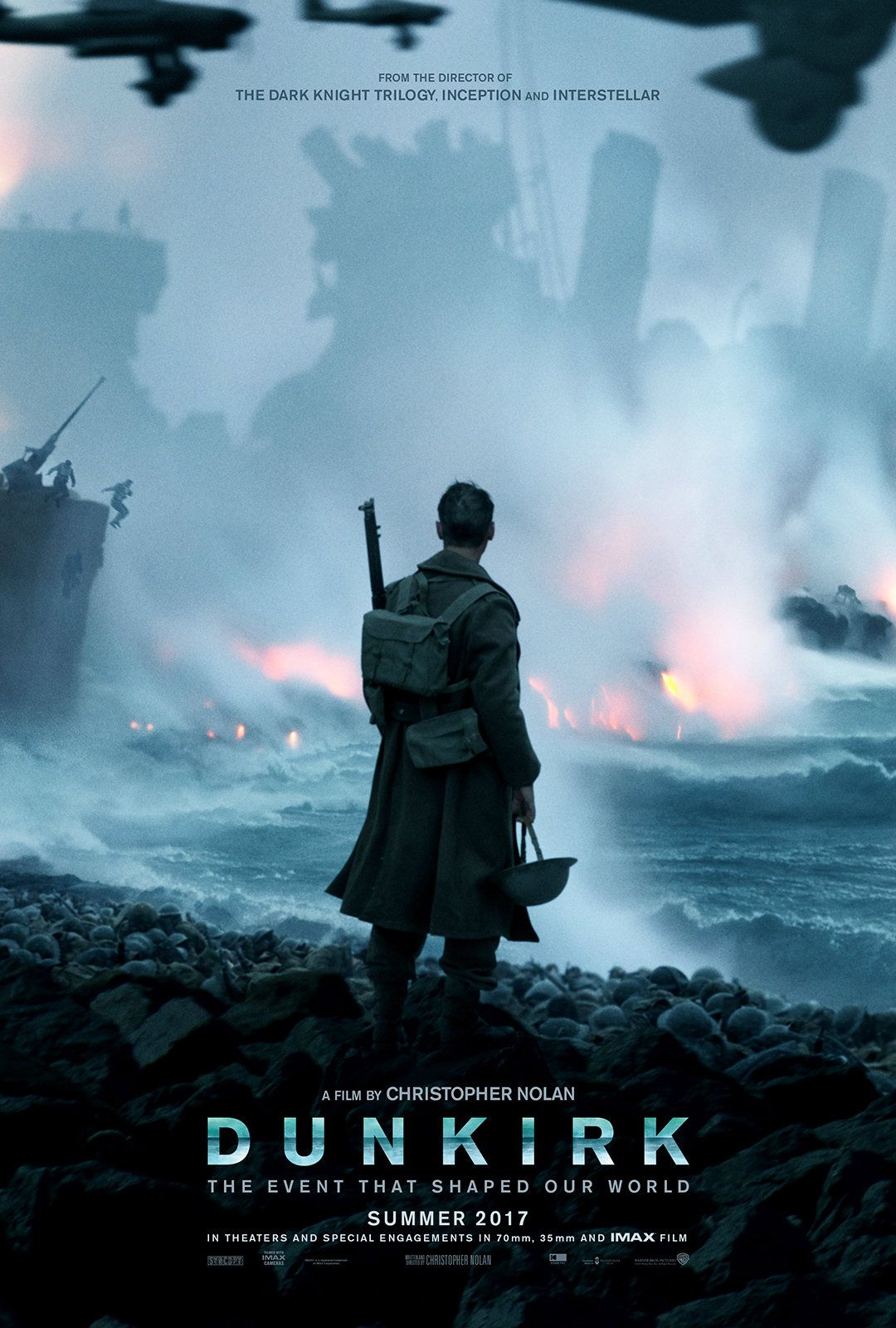
Dunkirk
This epic tale of World War II tells the story of soldiers from Belgium, Britain, Canada and France, who are surrounded by the German army, and the dangerous operation that evacuated and saved the lives of thousands.
- Release Date
- July 21, 2017
- Runtime
- 106 minutes
Christopher Nolan is known for his epic style of filmmaking as well as his practical approach to achieving it. That makes for an exhilarating combination in his first war movie. Dunkirk is based on the true story of one of the most pivotal moments in World War II as the British army faced defeat with a majority of its forces stranded on the beaches of Dunkirk in France. As the German forces closed in, an ambitious and critical rescue mission was launched with civilian boats crossing the waters to bring the soldiers home.
Nolan tells the story in a unique way, breaking it down into three separate timelines to focus on the soldiers on the beach over the course of a week, those in the boats coming to rescue them over the course of a day, and the pilots in the air coming to defend them over the course of an hour. The result is an intense and captivating ride that takes an interesting alternative look at the heroism seen in war movies as it is a story of survival rather than victory.
20 Kagemusha (1980)
Directed by: Akira Kurosawa
The great Akira Kurosawa is one of the most acclaimed and influential directors of all time, who made a number of excellent intimate movies, but also makes an epic like no one else. The Palme d’Or winner at the 1980 Cannes Film Festival was one of Kurosawa’s later films, Kagemusha (1980), which details the struggles of a petty thief hired to act as a double for a samurai warlord, only for the latter to die and the thief takes his place. This enables the clan to maintain their enemies’ fears, while the thief seeks to maintain its power despite his inexperience.
Kagemusha
Rotten Tomatoes Audience Rating: 92%
A monumental musing on smoke and mirrors that is also remembered for its pictorial splendor, Kagemusha may sometimes be overlooked by Kurosawa’s Ran (1985), but wrongly so. Tatsuya Nakadai’s dual performance as two distinct characters who are yet shadows of one another is a triumph, while Kurosawa’s direction and eye for imagery are still unmatched today.
19 Braveheart (1995)
Directed by: Mel Gibson
Mel Gibson won the Oscars for Best Director and Best Picture for his epic historical war movie. Inspired by Blind Harry’s 15th-century epic poem, Braveheart tells the story of Sir William Wallace leading the Scots in the First War of Scottish Independence that occurred in the late 1200s. Directed by and starring Gibson, Braveheart is an awe-inspiring, optimistic picture of bravery in the face of tyranny, that nevertheless retains the grittiness that one would expect from a medieval war epic.
Its detractors have questioned its fidelity to the true life of the peasant-turned-renegade, but, much like some of the other films on this list, its greatness is not founded in its accuracy. Rather, Braveheart delivers and stirs raw emotion, engages its audience, and inspires. It also features some of the best battle sequences ever put on screen with the brutal bloody mayhem being used for genuinely effective storytelling.
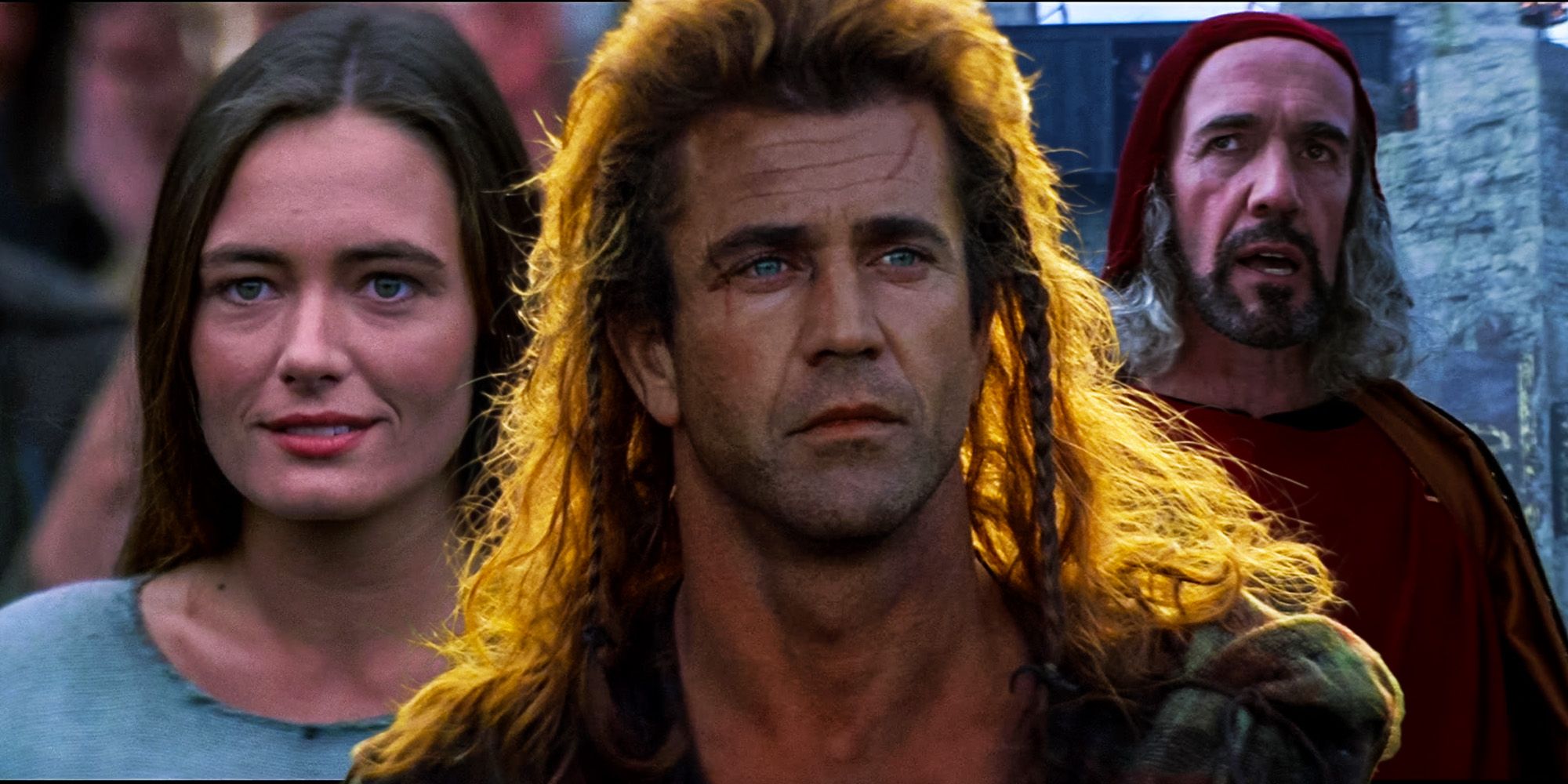
Related
Braveheart True Story: Everything Mel Gibson’s Movie Gets Right & Wrong
Mel Gibson’s Braveheart tells the story of William Wallace – but it’s one of the least historically accurate movies that have ever been made.
18 Saving Private Ryan (1998)
Directed by: Steven Spielberg
Steven Spielberg won his second Oscar for the engrossing war movie Saving Private Ryan which features some of the most realistic and impactful war movie sequences of all time. The movie’s plot, which centers around a rescue mission in the midst of the war, sets the stage for a more serious and grounded take on the “team on a mission” trope, including Tom Hanks as the heroic leader of the team who has a distinct everyman quality to him instead of being a hardened warrior.
Saving Private Ryan
Rotten Tomatoes Audience Rating: 95%
Beginning with the unforgettable sequence set during the Allied attack on Normandy in 1944, Saving Private Ryan goes on to detail the search for James Ryan, a soldier whose three brothers have already been killed. Though it never quite lives up to its opening act, it remains as effective as any at imprinting the hell of war into an audience’s mind and is about as cinematic as any 20th-century film ever was.
17 Kingdom Of Heaven (2005)
Directed by: Ridley Scott
Having disowned the theatrical cut of Kingdom of Heaven, Ridley Scott has made it clear that his cut is the definitive version – and he is right to do so. The story follows Balian, a French blacksmith, who travels to Jerusalem in the aftermath of the Second Crusade, just as the brittle peace between the Christian King Baldwin and Muslim military leader Saladin Ayubi begins to wane.
Heavily fictionalized, overly long, and erratically paced, Kingdom of Heaven is nonetheless a triumph of a period piece, with astonishing visuals, poignant subplots, and delightful battle sequences. Scott has had issues with studio interference for decades, but his cut of Kingdom of Heaven once again proves his ability. Orlando Bloom makes for a solid lead while the movie is filled with an impressive cast that includes Liam Neeson, Brendan Gleeson, Eva Green, and Edward Norton.
16 Schindler’s List (1993)
Directed by: Steven Spielberg
Schindler’s List (1995)
- Release Date
- February 4, 1994
- Writers
- Steven Zaillian
Though he was initially skeptical about his own ability to make a Holocaust film (so much so that he tried to offload the project onto Roman Polanski), Spielberg was ultimately convinced to make Schindler’s List after a rise in neo-Nazism and Holocaust denial following the fall of the Berlin Wall. Refusing a salary and pessimistic about the film’s success, he went on to create one of the greatest biopics ever put to screen, and about a man that audiences were mostly unaware of prior to its release.
Schindler’s List
Rotten Tomatoes Audience Rating: 97%
The movie tells the true story of Oskar Schindler, a factory owner who profited off of forced Jewish labor only to use his position to save thousands of people from concentration camps. The portrayal of Schindler by Liam Neeson is devastating, as a man who is broken by the realization that he can never do enough to combat the brutality of the Nazis, and Ralph Fiennes’s terrifying portrayal of SS functionary Amon Goth is equally memorable.
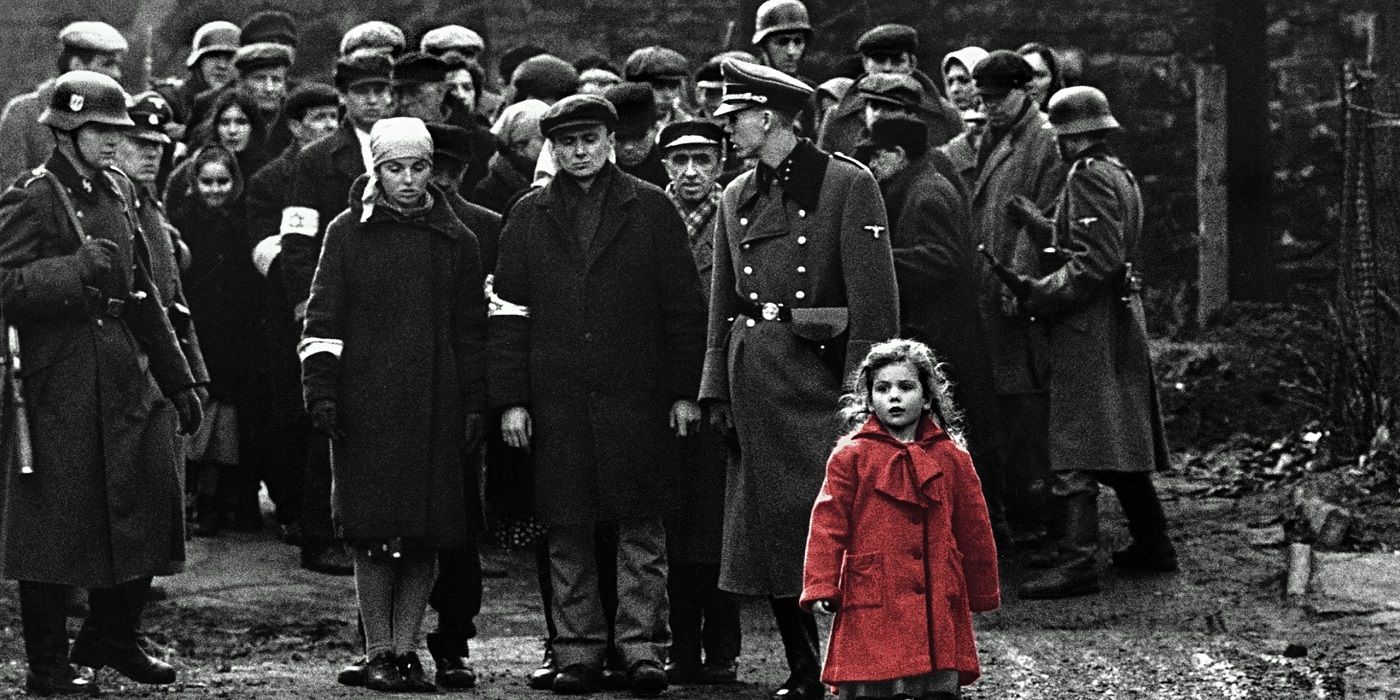
Related
Why Schindler’s List Is In Black & White (Then Switches To Color)
Steven Spielberg’s visual choice was deeply thoughtful and crucial to the larger meaning he hoped to convey through Schindler’s List.
15 Inglourious Basterds (2009)
Directed By: Quentin Tarantino
The first time Quentin Tarantino changed history in his period movies was the World War Two action film Inglorious Basterds, set in Nazi-occupied France and following the coinciding stories of two factions vying to assassinate Hitler and his inner circle. Though numerous historical liberties are taken throughout the picture, Tarantino is by no means pretending to be a historian. Instead, the movie carries an elevated tone and a dark sense of humor that actually delivers some huge laughs.
The performances of Mélanie Laurent, Diane Kruger, Brad Pitt, and Christoph Waltz are some career-bests, while the creative narrative about a commando unit infiltrating a cinema – wherein the Jewish proprietor is already hatching a plan to kill Hitler – is immaculately crafted. The way in which Tarantino is able to make his own “team on a mission” movie with amazing twists and subversion while also threading in elements of cinema history is a brilliant feat and one of his most impressive screenplays.
Directed By: Stanley Kubrick
Much of Stanley Kubrick’s creative output was devoted to exploring humanity’s folly when it came to war. Full Metal Jacket, Kubrick’s final war movie, is a two-part examination of the philosophy of the military during the Vietnam War. In the first half, newly recruited marines battle to survive the cruelty of an army boot camp. This is highlighted by the stand-out performances of R. Lee Emery as the ruthless Drill Sergeant and Vincent D’Onofrio as a troubled recruit.
Full Metal Jacket
Rotten Tomatoes Audience Rating: 94%
In the second half, numerous pre-established characters navigate through the Vietnamese city of Hue during the Tet Offensive. This second half is something of an anti-climax (surprisingly enough considering it’s set in a warzone), yet Full Metal Jacket never loses its biblical watchability and visceral depictions of a hellish place. It also features some of the best examples of the dark sense of humor that is sometimes overlooked in Kubrick’s movies.
13 Incendies (2010)
Directed By: Denis Villeneuve
Before Québécois filmmaker Denis Villeneuve moved over to English-language motion pictures with Prisoners and subsequently became one of the most sought-after directors, he adapted Wajdi Mouawad’s play Incendies, a mystery thriller set in the war-torn Middle East. Though the specific locations in the film are ambiguous, there is enough evidence to suggest that Incendies is based on the events of the fifteen-year Lebanese Civil War which began in 1975.
Following twins Jeanne and Simon as they attempt to deliver letters from their late mother to their father and a brother they never knew they had, two timelines deliver audiences on a harrowing voyage through the sufferings of refugees, women, and children in the bowels of conflict. The movie was nominated for Best International Feature Film at the Oscars and announced Villeneuve as a filmmaker that Hollywood should be paying attention to.
12 The Deer Hunter (1978)
Directed By: Michael Cimino
Slow-burning and meditative, The Deer Hunter (1978) – which won five Academy Awards – is an irreverent story of soldiers’ lives before, during, and after the Vietnam War. Told in three distinct acts that correspond accordingly, The Deer Hunter follows the experiences of steel mill workers in Pennsylvania around the time of their conscriptions but also focuses on the effects of the war on their loved ones.
The entire film’s centerpiece is a game of Russian roulette forced upon the soldiers, which comes to perpetually define their lives. There’s definitely less nuance in the script when it comes to depictions of the Viet Cong, which viewers ought to be advised are inaccurate and simplistic. However, the war aspect of the movie is a smaller part of the overall story that details how these experiences traumatized the friends while also affecting their community. Christopher Walken won an Oscar for his haunting performance as one of the soldiers.
11 1917 (2019)
Directed By: Sam Mendes
The reimagined stories that Sam Mendes heard at his grandfather’s knee are what make up the crux of 1917, a two-shot World War One thriller beautifully shot by Roger Deakins. The plot is simple: two young British privates are tasked with delivering a message across no man’s land that will prevent an isolated regiment from walking into a trap wherein they will be inevitably slaughtered.
The single-shot premise is well-earned and not at all gimmicky; the immersion an audience will feel trailing behind these men through the grimmest of battlegrounds – and with only one short reprieve when one is knocked unconscious – makes for riveting, harrowing viewing. There is an unsettling feeling of the audience being right there with the soldiers and thus anything can happen at any moment. However, the filmmaking style is not a gimmick and the story is affecting and powerful from beginning to end.
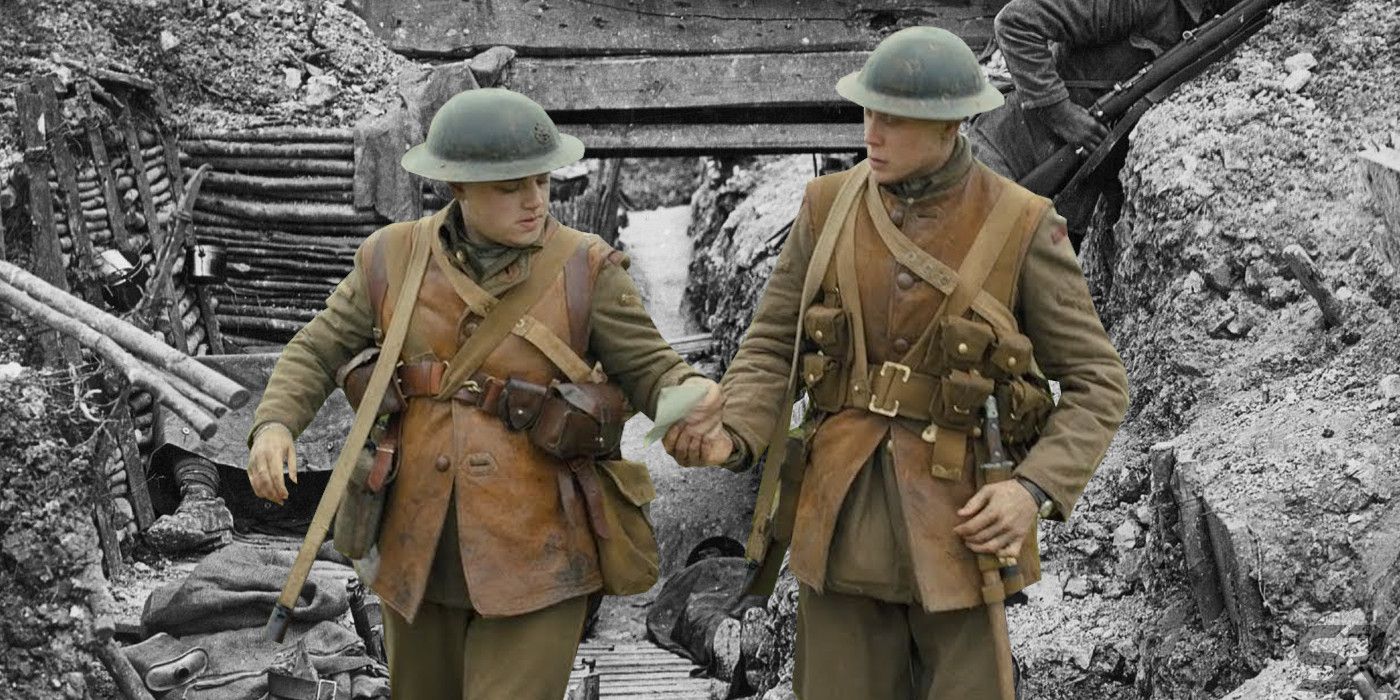
Related
1917 True Story: How Much Of The Movie Was Real
1917 is directed by Sam Mendes, who based it on stories told to him by his grandfather, Lance Corporal Alfred H. Mendes, with some liberties taken.
10 Das Boot (1981)
Directed By: Wolfgang Peterson
War and youth have often been coupled in cinema, and Das Boot (1981), a West German film written and directed by Wolfgang Peterson, was no exception. Mostly set aboard a German U-boat stalking the cold waters of the northern Atlantic Ocean in 1942, Das Boot is a look at the many experiences of the crew aboard.
Many of the new recruits are young men unaccustomed to the brutality of the conditions in the vastness of the ocean, but Das Boot makes no sweeping statements on the nature of war. Instead, it shows the comradery that can survive in spite of conflict, as sprinkled throughout are lighter moments of juvenile recreation. Yet it is also one of the most intense war movies thanks to its claustrophobic feel. It is also a fascinating look at the average German soldier beginning to question and lose faith in their nation’s war efforts.
9 Glory (1989)
Directed By: Edward Zwick
Numerous American Civil War films have been released to widespread acclaim, but few have examined the impact of African-American people on the defeat of the Confederacy and the ultimate abolition of slavery.Glory follows the 54th Massachusetts Infantry Regiment – one of the Union’s first African-American regiments – from its inception to its moment of glory during the attack on Fort Wagner, all while it suffers prejudice from both sides.
Glory
Rotten Tomatoes Audience Rating: 93%
The movie is a heartbreaking look at what these soldiers went through despite their bravery. However, it is also an uplifting story of the heroism they had in the face of such injustices. It’s often overlooked and wrongly so; Glory is a moving, vivid drama featuring outstanding performances from Denzel Washington, Morgan Freeman, and Matthew Broderick, and it’s well in contention for the best American Civil War film ever made.
8 Rome, Open City (1945)
Directed By: Roberto Rossellini
Rome, Open City (1945)
- Release Date
- September 27, 1945
- Main Genre
- International
Another underseen war movie that delivers an effective and unique approach to the genre. The overwhelming fear that the Nazis inspired is in part what makes the retreat from them such a compelling plot point in various Second World War films. Rome, Open City is the story of resistance leader Giorgio Manfredi as he attempts to escape Nazi-occupied Rome in 1944, while the SS troops attempt to track him down.
It’s considered one of the most influential contributions to the Italian neorealism subgenre, and won the Palme d’Or at Cannes. Rossellini draws compelling performances from his actors and navigates around the crude technology used in production, which serves to make Rome, Open City a profound take on war, though it is not without optimism at its end. The overall result is an unforgettable experience that shows that contrasts with many other war movies.
7 The Pianist (2002)
Directed By: Roman Polanski
After turning down Steven Spielberg’s Holocaust film Schindler’s List, it seemed unlikely that Polanski would venture into the stories of Nazi control, particularly as his mother was killed in Auschwitz, having previously survived in the Krakow Ghetto with her son. The Pianist is the true account of a Polish musician named Szpilman (Adrien Brody), through whom the audience has a lens to view the atrocities of Nazism in Warsaw.
Separated from his family by Operation Reinhard, Szpilman is forced to navigate the ruins of the Polish capital. It is a dedicated encapsulation of the real experiences of Polanski, expertly brought to life in his best film. Brody carries much of the movie with his transformative and heartbreaking performance that earned him an Oscar for Best Actor. It is a war movie that doesn’t focus on the battles of the soldiers but rather the fight for survival among the civilians.
6 Dr. Strangelove Or: How I Learned To Stop Worrying And Love The Bomb (1964)
Directed By: Stanley Kubrick
Probably the best war comedy ever – and in contention for simply the best comedy – Kubrick’s Dr. Strangelove is a riveting satire of the Cold War, starring Peter Sellers with his finest work, playing three characters including the titular role. Beloved not only for tastefully portraying the ‘60s hysteria surrounding nuclear apocalypse but also for its depiction of erratic army generals, mediocre politicians, and the superficiality of international diplomacy, Dr. Strangelove tells the story of a congress of statesmen frantically trying to avoid a nuclear accident.
The one-liners are biting, the performances (many of which are Sellers’) are unforgettable, and the use of Vera Lynn’s “We’ll Meet Again” is one of cinema’s greatest needle drops. While it is not surprising that Kubrick’s filmmaking is still effective after all these years, the fact that the humor has aged incredibly well is a real testament to its effectiveness.

